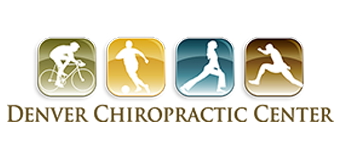Denver Chiropractor Dr. Glenn Hyman Presents Denver Chiropractic Center’s 1-Page Health News
Mental Attitude: Chronic Stress Can Affect Memory.
Individuals subjected to chronic stress due to bullying or a tough job may experience problems with their memory. Researchers found that mice who were repeatedly stressed by larger, more aggressive mice when they tried to find an escape hole in a maze became more forgetful than mice not exposed to the aggressive mice. The researchers say that the mice’s inability to remember coincided with stress-induced inflammation in the brain. They hope that a better understanding of stress, cognition, and mood problems may help create strategies for those suffering from anxiety, depression, and post-traumatic stress disorder.
The Journal of Neuroscience, March 2016
Health Alert: Secondhand Smoke Exacerbates COPD Symptoms.
Chronic obstructive pulmonary disease (COPD) is a chronic lung disease that makes breathing difficult and is the third leading cause of death in the United States. A recent study found 20% of COPD patients live with an active smoker and 27% were exposed to secondhand smoke during the previous week. For the COPD patient, secondhand smoke exposure is linked to a greater risk for severe exacerbations (51%), nocturnal symptoms (58%), wheezing (34%), and chronic cough (77%).
Thorax, March 2016
Diet: High-Fat Diet May Raise Cancer Risk.
New research suggests that a high-fat diet could increase the risk of colon cancer. In this study, researchers fed healthy mice a high-fat diet (60% of total calories from fat) for nine months and found the mice gained 30-50% more body mass and developed more intestinal tumors than mice on a control diet.
Nature, March 2016
Exercise: Brain Chemicals Affected By Exercise.
Researchers have found that people who exercise not only have better physical fitness than inactive persons, but they also have better mental fitness. Using MRI scans, researchers found that intense exercise increased the levels of two common neurotransmitters called glutamate and gamma-aminobutyric acid in study participants. The finding offers insights into brain metabolism and how exercise could become an essential part of treating depression and other neuropsychiatric disorders associated with deficiencies in neurotransmitters. Lead researcher Dr. Richard Maddock adds, “We are offering another view on why regular physical activity may be important to prevent or treat depression… Not every depressed person who exercises will improve, but many will. It’s possible that we can help identify the patients who would most benefit from an exercise prescription.”
Journal of Neuroscience, February 2016
Chiropractic: Is it CTS or Double Crush Syndrome?
Many patients with carpal tunnel syndrome (CTS) may also have median nerve entrapments further up the course of the nerve (in the neck, shoulder, elbow, etc). When the median nerve is encumbered at two anatomical locations, it’s described as a double crush syndrome (DCS). In this study, researchers compared the results of nerve conduction velocity (NCV) tests on patients with CTS and patients with CTS and cervical spondylotic radiculopathy (an example of DCS). The results showed worse nerve function in the patients with DCS, supporting the possibility of more severe CTS symptoms with a lower likelihood of resolution if treatment only focused on the wrist.
Journal of the Chinese Medical Association, September 2015 (Note- we treat both of these conditions with a combination of Active Release Techniques (ART) and chiropractic work. Call us at 303.300.0424)
Wellness/Prevention: Experts Unsure If Seniors Should Have Routine Vision Checks.
A panel of experts concludes there is not enough data to say whether or not seniors should be routinely screened for vision trouble by their primary care physicians. According to the panel, primary care doctors typically check vision with an eye chart test and while this test can detect refractive errors, it does not identify early stage age-related macular degeneration or cataracts. Task force member Dr. Michael Pignone notes, “Older adults who are having vision problems should talk to their primary care doctor or eye specialist… in the absence of clear evidence, primary care doctors should use their clinical judgment when deciding whether to screen for vision problems in patients without vision symptoms.”
U.S. Preventive Services Task Force, March 2016


